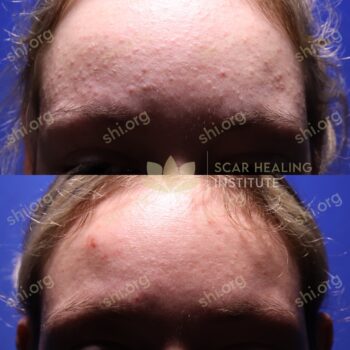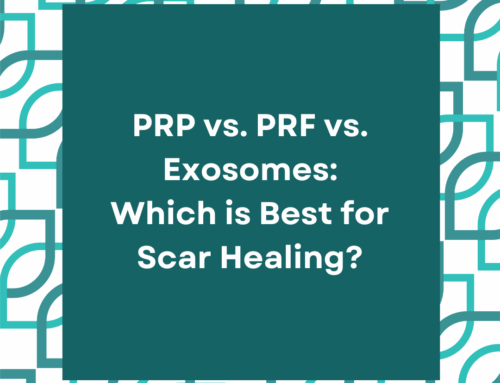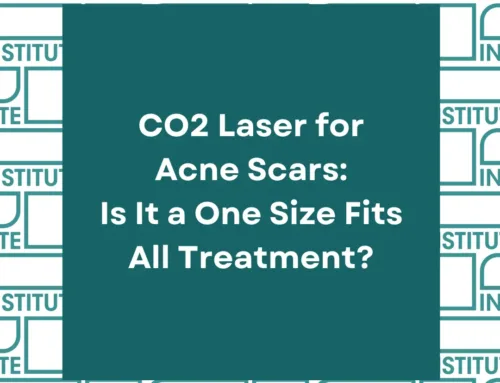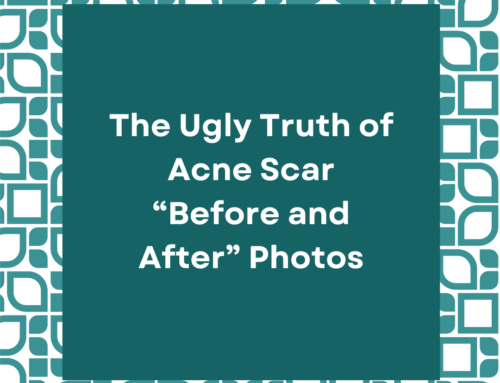Acne, despite its being a prevalent skin condition affecting millions worldwide, is often misunderstood. There are thousands of misconceptions out there–and we get it–it’s hard not to consume it all. Nevertheless, it is crucial to grasp acne’s biological underpinnings, treatment options, and the importance of seeking an experienced dermatologist specializing. This blog delves into the etiology of acne, its prevalence, destigmatization, and various treatments while emphasizing the significance of expert dermatological care.
Etiology of Acne:
Acne, also known as acne vulgaris, primarily arises due to various factors:
- Excess Sebum Production: Sebaceous glands produce too much oil, leading to clogged pores.
- Clogged Pores: When skin cells and sebum plug hair follicles, it results in various types of acne lesions such as blackheads, whiteheads, pimples, or cysts.
- Bacterial Involvement: Propionibacterium acnes (P. acnes) bacteria thrives in clogged pores, causing inflammation and worsening acne.
- Hormonal Influence: Fluctuating hormone levels, typical during puberty, menstruation, pregnancy, or stress, can trigger acne.

Prevalence and Demographics:
Acne is prevalent among adolescents and young adults, but it can affect individuals of any age. It’s estimated that 85% of people between the ages of 12 and 24 experience acne at some point. However, adults in their 30s, 40s, and beyond can also suffer from acne, impacting self-esteem and mental health.
Destigmatizing Acne:
The societal stigma associated with acne can be psychologically distressing. It’s essential to normalize acne as a common, treatable condition, promoting self-acceptance and confidence. Destigmatizing conversations and media representation play a crucial role in fostering a positive outlook toward acne.
Different Treatments for Acne:
- Topical Treatments: Over-the-counter creams, gels, and lotions containing ingredients like benzoyl peroxide, salicylic acid, or retinoids help unclog pores and reduce bacteria.
- Oral Medications: Prescription antibiotics or isotretinoin may be recommended for severe cases. Always speak with an experienced provider before pursuing these options.
- Procedures: Dermatological procedures such as chemical peels, laser therapy, or extraction of comedones can be effective. We highly recommend acne extraction surgery to establish baseline healthy skin.
- Lifestyle Changes: Healthy diet, proper skincare, and stress management contribute to acne management. Supplements and dietary changes might just be your best friends!
The Importance of a Skilled Dermatologist:
Finding a skilled dermatologist specializing in acne treatment is paramount. A knowledgeable professional can provide personalized treatment plans, monitor progress, and suggest suitable skincare regimens. Moreover, they can address underlying skin conditions similar to acne, ensuring comprehensive care.
Taking it Home:
Acne, a widespread skin condition, requires comprehensive understanding, destigmatization, and effective treatment. Seek guidance from an experienced dermatologist to address acne and related skin conditions, promoting not just clear skin but also a positive self-image.
Remember, acne is treatable. Embrace professional care at Scar Healing Institute and a positive mindset to navigate this common skin concern confidently.




